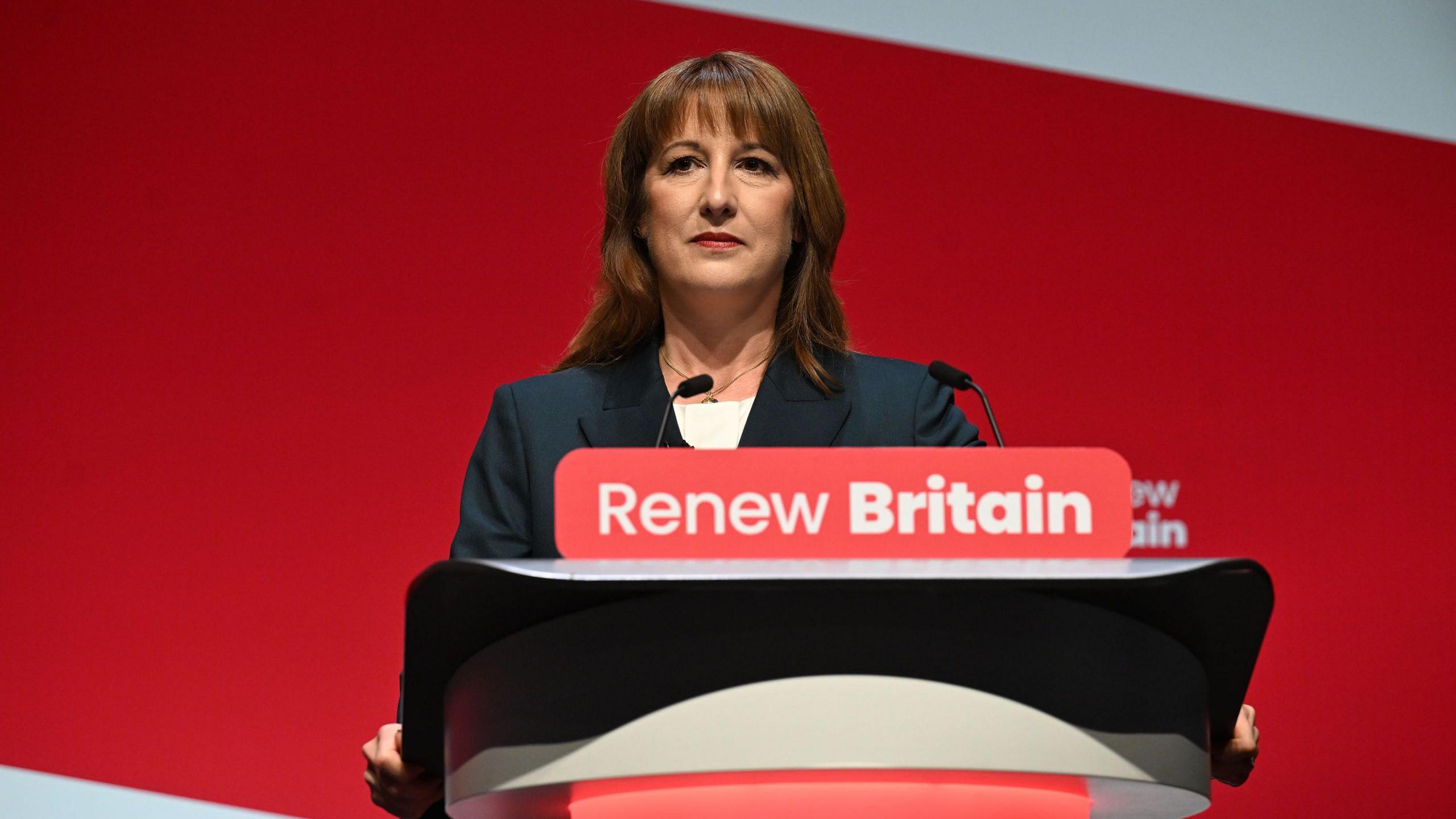What does Neet stand for and how many are there in the UK?

- Published
In her November Budget, Chancellor Rachel Reeves is expected to give more details about how the government plans to tackle the number of young people not in education, employment or training - also known as Neets.
The latest official figures show that one in eight people aged 16 to 24 in the UK are in this position.
What does Neet mean?
A young person is considered Neet if they are:
unemployed - looking for work; or
economically inactive - not actively looking for work and not waiting to start a job or caring for family
They are not considered to be Neet if they are in formal education, such as school or university, doing an apprenticeship or vocational course, or in full-time or part-time work.
How many Neets are there?
Every three months, the Office for National Statistics (ONS) releases figures on the number Neets in the UK.
The ONS produces its estimates from its Labour Force Survey. Fewer people have responded to the survey in recent years, which makes the results more volatile than in the past.
There were 946,000 young people who were Neet in the UK in the period from July and September 2025. That's equivalent to 12.7% of all people aged 16 to 24.
Most of those (580,000) fell under the economically inactive category.
The number of Neets tends to fluctuate throughout the year. The total for the April to June period was slightly more at 948,000, whereas the January to March total was 923,000.
The largest quarterly Neets total was recorded in July to September 2011, when the number peaked at over a million after the 2008 financial crisis.
Who are the Neets?
Historically, more women than men have been Neet.
But in recent years that trend has reversed, and the ONS says a young man is more likely to be Neet than a young woman.
Research by the government into 16 and 17-year-old Neets found they were more likely to be white than have another ethnicity.
Outside of this age group, however, the Youth Future Foundation found that Black, Black Caribbean and Black African young people had a higher Neet rate than the UK average.
Further analysis by the foundation showed significant regional variation too, with young people in the North East and East of England more likely to be Neet than those living elsewhere in the country.
Qualification levels are also a factor in how likely someone is to be Neet.
Research by the Impetus charity found that young people with fewer than five GCSEs by the age 18 were more likely be Neet than those with more or higher qualifications.
Number of young people not in work or education hits 11-year high
- Published27 February
What needs to change to get more people working?
- Published5 November
Why are there so many Neets?
The Youth Futures Foundation says one of the main causes of economic inactivity over the past three years has been a rise in long-term sickness among young people.
Figures from the Department for Education (DfE) showed that more than half of the Neets in England in 2024 had a health condition.
Around one in five (18%) had a mental health condition.
DfE data also suggests that more than 10% of young people who are Neet have learning difficulties.
The jobs market is also particularly challenging for young people, with 2025 figures showing a falling number of vacancies and fewer people on payrolls.
Analysis published in August 2025 suggested that more than half of jobs lost since the previous Budget had been in the hospitality sector - a sector which traditionally employs a disproportionately high number of people in the 16 to 24 age group.
Low pay and lack of availability has previously been an issue for young people finding apprenticeships, while some graduates have also experienced difficulty finding work after university too.
What is the government doing about Neets?

Chancellor Rachel Reeves is expected to give more details of the government's approach to Neets in the Budget on 26 November
In her speech at the Labour Party Conference in October 2025, Rachel Reeves promised "nothing less than the abolition of long-term youth unemployment".
Also at conference, Prime Minister Sir Keir Starmer said he wanted to see two-thirds of young people in the UK go to university or study a technical qualification after leaving school.
Earlier in November 2024, the government announced a "youth guarantee" - a pledge to provide anyone aged 18 to 21 in England with access to an apprenticeship, training, education opportunities or help to find a job
It said those who have been Neet for more than 18 months will also be given a paid work placement, to help them prepare for a full-time job.
Anyone who refuses to take up the offer could be stripped off their benefits.
Disability charity Scope criticised the scheme, and called for the government to tackle the "real barriers" young disabled people face in finding work before removing "financial safety nets".
Ahead of the Budget, the Department for Work and Pensions (DWP) said that former Health Secretary Alan Milburn would lead an independent investigation into what's behind rise in youth inactivity.
It will focus on the impact of mental health conditions and disability, and aims to report in summer 2026.
Everything you need to know about the Budget
- Published12 hours ago
What else is being done across the UK?
In Wales, the Young Person's Guarantee, external was introduced in 2021 to help 16 to 24-year-olds choose the right course, find an apprenticeship, search for jobs or start a business.
In Scotland, the Developing the Young Workforce (DYW) scheme , external was announced in the wake of the Covid pandemic to connect young people with appropriate opportunities such as apprenticeships, work experience or formal volunteering.
In Northern Ireland, there are a range of schemes aimed at helping Neets.
Get in touch
Are you a Neet? What is stopping you getting opportunities? What support do you need?